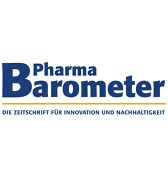Based on MATTERHORN Phase III trial results which showed a 29% reduction in the risk of progression, recurrence or death and a 22% reduction in the risk of death for the IMFINZI regimen vs. chemotherapy alone
WILMINGTON, Del.–(BUSINESS WIRE)–AstraZeneca’s IMFINZI® (durvalumab) in combination with standard-of-care FLOT chemotherapy (fluorouracil, leucovorin, oxaliplatin, and docetaxel) has been approved in the US for the treatment of adult patients with resectable, early-stage and locally advanced (Stages II, III, IVA) gastric and gastroesophageal junction (GEJ) cancers. The approved regimen includes neoadjuvant IMFINZI in combination with chemotherapy before surgery, followed by adjuvant IMFINZI in combination with chemotherapy, then IMFINZI monotherapy.
The approval follows Priority Review by the Food and Drug Administration (FDA) and is based on event-free survival (EFS) and overall survival (OS) data from the MATTERHORN Phase III trial. The EFS results were presented during the Plenary Session at the 2025 American Society of Clinical Oncology (ASCO) Annual Meeting and simultaneously published in The New England Journal of Medicine. OS results from MATTERHORN were presented in a Proffered Paper session at the European Society for Medical Oncology (ESMO) Congress 2025.
Gastric cancer is the fifth leading cause of cancer death globally, with nearly one million people diagnosed each year.1 In 2024, there were roughly 6,500 drug-treated patients in the US in early-stage and locally advanced gastric or GEJ cancer.2
Dave Fredrickson, Executive Vice President, Oncology Haematology Business Unit, AstraZeneca, said: “This approval ushers in a new clinical paradigm for patients with early gastric and gastroesophageal junction cancers, with IMFINZI plus FLOT delivering a durable survival benefit that increases over time. As the third US approval for a perioperative IMFINZI-based regimen, this milestone further validates the perioperative approach and underscores our focus on bringing novel treatments to early-stage cancers where cure is the goal.”
Yelena Y. Janjigian, MD, Chief Attending Physician of the Gastrointestinal Medical Oncology Service, Memorial Sloan Kettering Cancer Center (MSK), New York and principal investigator in the MATTERHORN trial, said: “Today’s approval marks the first immunotherapy regimen approved in the neoadjuvant setting for gastric and gastroesophageal junction cancers—with durvalumab demonstrating a clear overall survival benefit and opening an entirely new chapter in the treatment of early-stage disease. Nearly seven in 10 patients were alive at three years following treatment with the durvalumab-based perioperative regimen. This survival benefit, observed regardless of PD-L1 status, establishes a new standard of care in this curative-intent setting.”
Aki Smith, Founder and Executive Director, Hope for Stomach Cancer, said: “From personal experience as a caregiver to my father, I know that for too long patients diagnosed with early gastric or gastroesophageal junction cancer have faced a high risk of their cancer returning, even after undergoing surgery and therapy intended to cure it. Today’s approval represents a major step forward in improving outcomes and offering renewed hope to those affected by this devastating disease.”
In a planned interim analysis, patients treated with the IMFINZI-based perioperative regimen showed a 29% reduction in the risk of disease progression, recurrence or death versus chemotherapy alone (based on an EFS hazard ratio [HR] of 0.71; 95% confidence interval [CI] 0.58-0.86; P<0.001). Estimated median EFS was not yet reached for the IMFINZI arm versus 32.8 months for the comparator arm. An estimated 78.2% of patients treated with the IMFINZI-based perioperative regimen were event-free at one year, compared to 74.0% in the comparator arm; the estimated 24-month EFS rate was 67.4% versus 58.5%, respectively.
In the final OS analysis, results showed the IMFINZI and FLOT perioperative regimen reduced the risk of death by 22% compared with chemotherapy alone (based on a HR of 0.78; 95% CI 0.63-0.96; P=0.021). An estimated 69% of patients treated with the IMFINZI-based regimen were alive at three years compared with 62% in the FLOT-only arm. With longer follow-up, the OS curves showed continued separation, signaling a greater magnitude of benefit over time for the IMFINZI-based regimen. An OS benefit was observed regardless of PD-L1 status.
The safety profile for IMFINZI and FLOT chemotherapy was consistent with the known profiles of each medicine, and the percentage of patients that completed surgery was similar compared to chemotherapy alone. Grade 3 or higher adverse events due to any cause were similar between the two arms (71.6% for IMFINZI and FLOT arm; 71.2% for FLOT-only arm).
The US regulatory submission was reviewed under Project Orbis, which provides a framework for concurrent submission and review of oncology medicines among participating international partners. As part of Project Orbis, the IMFINZI and FLOT perioperative regimen is also under review by regulatory authorities in Australia, Canada, and Switzerland for the same indication. Regulatory applications are also under review in the European Union (EU), Japan and several other countries.
IMPORTANT SAFETY INFORMATION
There are no contraindications for IMFINZI® (durvalumab).
Immune-Mediated Adverse Reactions
Important immune-mediated adverse reactions listed under Warnings and Precautions may not include all possible severe and fatal immune-mediated reactions. Immune-mediated adverse reactions, which may be severe or fatal, can occur in any organ system or tissue. Immune-mediated adverse reactions can occur at any time after starting treatment or after discontinuation. Monitor patients closely for symptoms and signs that may be clinical manifestations of underlying immune-mediated adverse reactions. Evaluate liver enzymes, creatinine, and thyroid function at baseline and periodically during treatment. In cases of suspected immune-mediated adverse reactions, initiate appropriate workup to exclude alternative etiologies, including infection. Institute medical management promptly, including specialty consultation as appropriate. Withhold or permanently discontinue IMFINZI depending on severity. See USPI Dosing and Administration for specific details. In general, if IMFINZI requires interruption or discontinuation, administer systemic corticosteroid therapy (1 mg to 2 mg/kg/day prednisone or equivalent) until improvement to Grade 1 or less. Upon improvement to Grade 1 or less, initiate corticosteroid taper and continue to taper over at least 1 month. Consider administration of other systemic immunosuppressants in patients whose immune-mediated adverse reactions are not controlled with corticosteroid therapy.
Immune-Mediated Pneumonitis
IMFINZI can cause immune-mediated pneumonitis. The incidence of pneumonitis is higher in patients who have received prior thoracic radiation. In patients who did not receive recent prior radiation, the incidence of immune-mediated pneumonitis was 2.4% (34/1414), including fatal (<0.1%), and Grade 3-4 (0.4%) adverse reactions. The frequency and severity of immune-mediated pneumonitis in patients who did not receive definitive chemoradiation prior to IMFINZI were similar in patients who received IMFINZI as a single agent or with ES-SCLC or BTC when given in combination with chemotherapy.
Immune-Mediated Colitis
IMFINZI can cause immune-mediated colitis that is frequently associated with diarrhea. Cytomegalovirus (CMV) infection/reactivation has been reported in patients with corticosteroid-refractory immune-mediated colitis. In cases of corticosteroid-refractory colitis, consider repeating infectious workup to exclude alternative etiologies. Immune-mediated colitis occurred in 2% (37/1889) of patients receiving IMFINZI, including Grade 4 (<0.1%) and Grade 3 (0.4%) adverse reactions.
Immune-Mediated Hepatitis
IMFINZI can cause immune-mediated hepatitis. Immune-mediated hepatitis occurred in 2.8% (52/1889) of patients receiving IMFINZI, including fatal (0.2%), Grade 4 (0.3%) and Grade 3 (1.4%) adverse reactions.
Immune-Mediated Endocrinopathies
- Adrenal Insufficiency: IMFINZI can cause primary or secondary adrenal insufficiency. For Grade 2 or higher adrenal insufficiency, initiate symptomatic treatment, including hormone replacement as clinically indicated. Immune-mediated adrenal insufficiency occurred in 0.5% (9/1889) of patients receiving IMFINZI, including Grade 3 (<0.1%) adverse reactions.
- Hypophysitis: IMFINZI can cause immune-mediated hypophysitis. Hypophysitis can present with acute symptoms associated with mass effect such as headache, photophobia, or visual field cuts. Hypophysitis can cause hypopituitarism. Initiate symptomatic treatment including hormone replacement as clinically indicated. Grade 3 hypophysitis/hypopituitarism occurred in <0.1% (1/1889) of patients who received IMFINZI.
-
Thyroid Disorders (Thyroiditis, Hyperthyroidism, and Hypothyroidism): IMFINZI can cause immune-mediated thyroid disorders. Thyroiditis can present with or without endocrinopathy. Hypothyroidism can follow hyperthyroidism. Initiate hormone replacement therapy for hypothyroidism or institute medical management of hyperthyroidism as clinically indicated.
- Thyroiditis: Immune-mediated thyroiditis occurred in 0.5% (9/1889) of patients receiving IMFINZI, including Grade 3 (<0.1%) adverse reactions.
- Hyperthyroidism: Immune-mediated hyperthyroidism occurred in 2.1% (39/1889) of patients receiving IMFINZI.
- Hypothyroidism: Immune-mediated hypothyroidism occurred in 8.3% (156/1889) of patients receiving IMFINZI, including Grade 3 (<0.1%) adverse reactions.
- Type 1 Diabetes Mellitus, which can present with diabetic ketoacidosis: Monitor patients for hyperglycemia or other signs and symptoms of diabetes. Initiate treatment with insulin as clinically indicated. Grade 3 immune-mediated Type 1 diabetes mellitus occurred in <0.1% (1/1889) of patients receiving IMFINZI.
Immune-Mediated Nephritis with Renal Dysfunction
IMFINZI can cause immune-mediated nephritis. Immune-mediated nephritis occurred in 0.5% (10/1889) of patients receiving IMFINZI, including Grade 3 (<0.1%) adverse reactions.
Immune-Mediated Dermatology Reactions
IMFINZI can cause immune-mediated rash or dermatitis. Exfoliative dermatitis, including Stevens-Johnson Syndrome (SJS), drug rash with eosinophilia and systemic symptoms (DRESS), and toxic epidermal necrolysis (TEN), has occurred with PD-1/L-1 and CTLA-4 blocking antibodies. Topical emollients and/or topical corticosteroids may be adequate to treat mild to moderate non-exfoliative rashes. Immune-mediated rash or dermatitis occurred in 1.8% (34/1889) of patients receiving IMFINZI, including Grade 3 (0.4%) adverse reactions.
Other Immune-Mediated Adverse Reactions
The following clinically significant, immune-mediated adverse reactions occurred at an incidence of less than 1% each in patients who received IMFINZI or were reported with the use of other immune-checkpoint inhibitors.
- Cardiac/vascular: Myocarditis, pericarditis, vasculitis.
- Nervous system: Meningitis, encephalitis, myelitis and demyelination, myasthenic syndrome/myasthenia gravis (including exacerbation), Guillain-Barré syndrome, nerve paresis, autoimmune neuropathy.
- Ocular: Uveitis, iritis, and other ocular inflammatory toxicities can occur. Some cases can be associated with retinal detachment. Various grades of visual impairment to include blindness can occur. If uveitis occurs in combination with other immune-mediated adverse reactions, consider a Vogt-Koyanagi-Harada-like syndrome, as this may require treatment with systemic steroids to reduce the risk of permanent vision loss.
- Gastrointestinal: Pancreatitis including increases in serum amylase and lipase levels, gastritis, duodenitis.
- Musculoskeletal and connective tissue disorders: Myositis/polymyositis, rhabdomyolysis and associated sequelae including renal failure, arthritis, polymyalgia rheumatic.
- Endocrine: Hypoparathyroidism.
- Other (hematologic/immune): Hemolytic anemia, aplastic anemia, hemophagocytic lymphohistiocytosis, systemic inflammatory response syndrome, histiocytic necrotizing lymphadenitis (Kikuchi lymphadenitis), sarcoidosis, immune thrombocytopenia, solid organ transplant rejection, other transplant (including corneal graft) rejection.
Infusion-Related Reactions
IMFINZI can cause severe or life-threatening infusion-related reactions. Monitor for signs and symptoms of infusion-related reactions. Interrupt, slow the rate of, or permanently discontinue IMFINZI based on the severity. See USPI Dosing and Administration for specific details. For Grade 1 or 2 infusion-related reactions, consider using pre-medications with subsequent doses. Infusion-related reactions occurred in 2.2% (42/1889) of patients receiving IMFINZI, including Grade 3 (0.3%) adverse reactions.
Complications of Allogeneic HSCT after IMFINZI
Fatal and other serious complications can occur in patients who receive allogeneic hematopoietic stem cell transplantation (HSCT) before or after being treated with a PD-1/L-1 blocking antibody. Transplant-related complications include hyperacute graft-versus-host disease (GVHD), acute GVHD, chronic GVHD, hepatic veno-occlusive disease (VOD) after reduced intensity conditioning, and steroid-requiring febrile syndrome (without an identified infectious cause). These complications may occur despite intervening therapy between PD-1/L-1 blockade and allogeneic HSCT. Follow patients closely for evidence of transplant-related complications and intervene promptly. Consider the benefit versus risks of treatment with a PD-1/L-1 blocking antibody prior to or after an allogeneic HSCT.
Embryo-Fetal Toxicity
Based on its mechanism of action and data from animal studies, IMFINZI can cause fetal harm when administered to a pregnant woman. Advise pregnant women of the potential risk to a fetus. In females of reproductive potential, verify pregnancy status prior to initiating IMFINZI and advise them to use effective contraception during treatment with IMFINZI and for 3 months after the last dose of IMFINZI.
Lactation
There is no information regarding the presence of IMFINZI in human milk; however, because of the potential for serious adverse reactions in breastfed infants from IMFINZI, advise women not to breastfeed during treatment and for 3 months after the last dose.
Adverse Reactions
- In patients with resectable GC/GEJC, the most common adverse reactions in the overall study (occurring in ≥20% of patients) were diarrhea, nausea, peripheral neuropathy, fatigue, alopecia, decreased appetite, rash, abdominal pain, vomiting, musculoskeletal pain, pyrexia, and stomatitis.
- In patients with resectable GC/GEJC in the neoadjuvant phase of the MATTERHORN study receiving IMFINZI in combination with FLOT chemotherapy (n=475), permanent discontinuation of IMFINZI due to an adverse reaction occurred in 2.5% of patients. Serious adverse reactions occurred in 21% of patients; the most frequent (≥2%) serious adverse reaction was diarrhea (2.5%). Deaths occurred in 1.9% of patients; deaths ≥2 patients included septic shock (0.6%) and acute coronary syndrome (0.4%). Of the 475 patients in the IMFINZI + FLOT chemotherapy treatment arm and 469 patients in the placebo + FLOT chemotherapy treatment arm who received neoadjuvant treatment, 0.6% and 0.4% of patients, respectively, did not receive surgery due to adverse reactions, and 2.3% and 2.6% of patients, respectively, had a delay in surgery due to ARs.
- In patients with resectable GC/GEJC in the adjuvant phase of the MATTERHORN study receiving IMFINZI in combination with FLOT chemotherapy (n=365), permanent discontinuation of IMFINZI due to an adverse reaction occurred in 7% of patients. Serious adverse reactions occurred in 29% of patients; the most frequent (≥2%) serious adverse reaction was pneumonia (2.5%). Deaths occurred in 2.2% of patients; deaths ≥2 patients included gastrointestinal perforation (0.5%) and COVID-19 (0.5%).
- In patients with resectable GC/GEJC in the adjuvant phase of the MATTERHORN study receiving IMFINZI alone (n=345), permanent discontinuation of IMFINZI due to an adverse reaction occurred in 6% of patients. Serious adverse reactions occurred in 14% of patients. Deaths occurred in 1.7% of patients; deaths ≥2 patients included gastrointestinal perforation (0.6%) and COVID-19 (0.6%).
The safety and effectiveness of IMFINZI has not been established in pediatric patients.
Indication:
IMFINZI in combination with fluorouracil, leucovorin, oxaliplatin and docetaxel (FLOT) as neoadjuvant and adjuvant treatment, followed by single agent IMFINZI, is indicated for the treatment of adult patients with resectable gastric or gastroesophageal junction adenocarcinoma (GC/GEJC).
Please see additional Important Safety Information throughout and Full Prescribing Information including Medication Guide for IMFINZI.
You may report side effects related to AstraZeneca products.
Notes
Gastric and gastroesophageal junction cancers
Gastric (stomach) cancer is the fifth most common cancer worldwide and the fifth-highest leading cause of cancer mortality.1 Nearly one million new patients were diagnosed with gastric cancer in 2022, with approximately 660,000 deaths reported globally.1 In many regions, its incidence has been increasing in patients younger than 50 years old, along with other gastrointestinal (GI) malignancies.3 In 2024, there were roughly 43,000 drug-treated patients in the US, EU and Japan in early-stage and locally advanced gastric or GEJ cancer.2 Approximately 62,000 patients in these regions are expected to be newly diagnosed in this setting by 2030.4
GEJ cancer is a type of gastric cancer that arises from and spans the area where the esophagus connects to the stomach.5
Disease recurrence is common in patients with resectable gastric cancer despite undergoing surgery with curative intent and treatment with neoadjuvant/adjuvant chemotherapy.6 Approximately one in four patients with gastric cancer who undergo surgery develop recurrent disease within one year, and the five-year survival rate remains poor, with less than half of patients alive at five years.6-7
MATTERHORN
MATTERHORN is a randomized, double-blind, placebo-controlled, multi-center, global Phase III trial evaluating IMFINZI as perioperative treatment for patients with resectable Stage II-IVA gastric and GEJ cancers. Perioperative therapy includes treatment before and after surgery, also known as neoadjuvant/adjuvant therapy. In the trial, 948 patients were randomized to receive a 1500mg fixed dose of IMFINZI plus FLOT chemotherapy or placebo plus FLOT chemotherapy every four weeks for two cycles prior to surgery. This was followed by IMFINZI or placebo every four weeks for up to 12 cycles after surgery (including two cycles of IMFINZI or placebo plus FLOT chemotherapy and 10 additional cycles of IMFINZI or placebo monotherapy).
In the MATTERHORN trial, the primary endpoint is EFS, defined as time from randomization until the date of one of the following events (whichever occurred first): RECIST (version 1.1, per blinded independent central review assessment) progression that precludes surgery or requires non-protocol therapy during the neoadjuvant period; RECIST progression/recurrence during the adjuvant period; non-RECIST progression that precludes surgery or requires non-protocol therapy during the neoadjuvant period or discovered during surgery; progression/recurrence confirmed by biopsy post-surgery; or death due to any cause. Key secondary endpoints include pathologic complete response rate, defined as the proportion of patients who have no detectable cancer cells in resected tumor tissue following neoadjuvant therapy, and OS. The trial enrolled participants in 176 centers in 20 countries, including in the US, Canada, Europe, South America and Asia.
IMFINZI
IMFINZI® (durvalumab) is a human monoclonal antibody that binds to the PD-L1 protein and blocks the interaction of PD-L1 with the PD-1 and CD80 proteins, countering the tumor’s immune-evading tactics and releasing the inhibition of immune responses.
In GI cancer, IMFINZI is approved in combination with chemotherapy in locally advanced or metastatic biliary tract cancer (BTC) and in combination with tremelimumab-actl in unresectable hepatocellular carcinoma (HCC). IMFINZI is also approved as a monotherapy in unresectable HCC in Japan and the EU.
In addition to its indications in GI cancers, IMFINZI is the global standard of care based on OS in the curative-intent setting of unresectable, Stage III non-small cell lung cancer (NSCLC) in patients whose disease has not progressed after chemoradiotherapy (CRT). Additionally, IMFINZI is approved as a perioperative treatment in combination with neoadjuvant chemotherapy in resectable NSCLC, and in combination with a short course of tremelimumab-actl and chemotherapy for the treatment of metastatic NSCLC. IMFINZI is also approved for limited-stage small cell lung cancer (SCLC) in patients whose disease has not progressed following concurrent platinum-based CRT; and in combination with chemotherapy for the treatment of extensive-stage SCLC.
Perioperative IMFINZI in combination with neoadjuvant chemotherapy is approved in the US, EU, Japan and other countries for patients with muscle-invasive bladder cancer based on results from the NIAGARA Phase III trial. Additionally, in May 2025, IMFINZI added to Bacillus Calmette-Guérin induction and maintenance therapy met the primary endpoint of disease-free survival for patients with high-risk non-muscle-invasive bladder cancer in the POTOMAC Phase III trial.
IMFINZI in combination with chemotherapy followed by IMFINZI monotherapy is approved as a 1st-line treatment for primary advanced or recurrent endometrial cancer (mismatch repair deficient disease only in the US and EU). IMFINZI in combination with chemotherapy followed by olaparib and IMFINZI is approved for patients with mismatch repair proficient advanced or recurrent endometrial cancer in the EU and Japan.
Since the first approval in May 2017, more than 414,000 patients have been treated with IMFINZI. As part of a broad development program, IMFINZI is being tested as a single treatment and in combinations with other anti-cancer treatments for patients with NSCLC, bladder cancer, breast cancer, ovarian cancer and several GI cancers.
AstraZeneca in GI cancers
AstraZeneca has a broad development program for the treatment of GI cancers across several medicines and a variety of tumor types and stages of disease. In 2022, GI cancers collectively represented approximately 5 million new cancer cases leading to approximately 3.3 million deaths.8
Within this program, the Company is committed to improving outcomes in gastric, liver, biliary tract, esophageal, pancreatic, and colorectal cancers.
In addition to its indications in BTC and HCC, IMFINZI is being assessed in combinations, including with tremelimumab-actl, in liver, esophageal and gastric cancers in an extensive development program spanning early to late-stage disease across settings.
Contacts
Media Inquiries
Lauren-Jei McCarthy
+1 (347) 918-7001
US Media Mailbox: usmediateam@astrazeneca.com




















